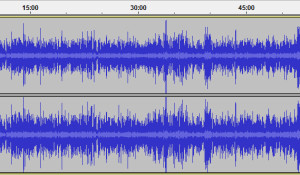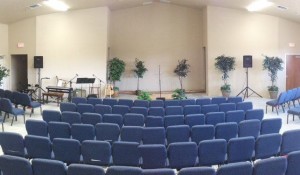(updated with audio on 12/08/2015)
Part 1
How Firm A Foundation
The author of this hymn is a bit of a mystery. It is unclear who the author was. What is clear is that this is a rich hymn filled with the influence of Scripture.
Pastor of the New Park Street Chapel in England, John Rippon, published a hymn book entitled A Selection of Hymns from the Best Authors. In this book he included “How Firm a Foundation” and credits the author as “K”. It is difficult to determine who that refers to.
Two likely individuals:
- R. Keene – the music director at New Park Street Chapel
- George Keith – is credited as the author in the Broadman Hymnal but not in later later editions of the Baptist Hymn books.
Regardless, this is a hymn worth some time for consideration. (More information HERE.)
Full Text
1 How firm a foundation you saints of the Lord,
is laid for your faith in his excellent Word!
What more can he say than to you he has said,
to you who for refuge to Jesus have fled?
2 “Fear not, I am with you, O be not dismayed,
for I am your God, and will still give you aid;
I’ll strengthen you, help you, and cause you to stand,
upheld by my righteous, omnipotent hand.
3 “When through the deep waters I call you to go,
the rivers of sorrow shall not overflow,
for I will be with you in trouble to bless,
and sanctify to you your deepest distress.
4 “When through fiery trials your pathway shall lie,
my grace all-sufficient shall be your supply;
the flame shall not hurt you; I only design
your dross to consume and your gold to refine.
5 “The soul that on Jesus has leaned for repose
I will not, I will not desert to its foes;
that soul, though all hell should endeavor to shake,
I’ll never, no, never, no never forsake!”
Final thoughts and observations on this hymn:
All five verses are rich with Scripture…
- v1: 1 Corinthians 3:11.
- v2: Phil. 4:12-13.
- v3: Isaiah 41:10
- v4: Isaiah 43:2
- v5: Isaiah 43:2, Romans 8:35-39, Hebrews 13:5, Deut. 31:6
Many newer publications don’t include v4. I especially like the conclusion of the song… “The soul that on Jesus has leaned for repose I will not, I will not desert to its foes; that soul, though all hell should endeavor to shake, I’ll never, no, never, no never forsake!”
Part 2
Islamic Terms
(the majority of the content is from www.4Truth.net)
.pdf document of terms (HERE)
Allah: This is the only Arabic word for god. This makes translation of the bible into Arabic problematic. Not because there is not a word in Arabic for god. An Arabic speaking person reading the bible in his/her language would use the word allah when they read your English word ‘god’.
In an English speaking context, we have a general word ‘god’ and a specific word for Yahweh [‘God’]. Translators generally note this with a lower case ‘g’ and an upper case ‘G’.
The necessary duty for a believer is to have a working knowledge of the definition according to the doctrine (teaching) of the different faiths.
One of note here is that the god (Allah) of Islam and the god (Yahweh) of the bible are not the same gods. Yahweh reveals Himself as triune, Allah is similar (in definition) but in no way a triune being. This is important in knowing why a Muslim is confused when you refer to Jesus as Deity (God). To a Muslim, you believe in multiple gods.
There is more, but this is a start.
Allahu Akbar: Arabic for “Allah is most great.”
Caliph: Successor of Muhammad as leader of the Muslim community. (four caliphs of Muhammad)
Is a form of Islamic government led by a caliph (a ruler considered a politico-religious leader of the Islamic community of believers, and rules in accordance with Islamic law.)
A caliphate is a political state without separation of religion and government ruled by a religious leader called a caliph. This politico/religious ‘state’ may or may not be recognized by the community at large as legitimate. In Islam, it doesn’t need to be recognized by others, they just are and do.
Fatwa: This is an Islamic legal ruling or edict.
Hadith: A collection of Muhammad’s sayings and deeds, known as the Traditions, which is commonly taught as a part of Islamic theology. Hadiths are explanations and interpretations of Muhammad’s living example.
Hajj: * Pilgrimage to Mecca during the twelfth month of the Muslim lunar calendar. Muslims are required to perform hajj at least once in their lifetime, if means and health allow.
Imam: A religious leader or head of a local community, or a spiritually qualified leader. He also leads in community political affairs.
Jihad: This is a struggle or effort in god’s cause. The great jihad is the inward struggle against the passions. The lesser jihad is a defensive or legal war, to protect the interest of Islam. It is mistakenly called holy war. Jihad is the Muslim obligation to strive to teach, explain, spread, and protect the message of Islam.
Ka’ba: A cubic stone structure where the black stone is housed. Located in the center of the Great Mosque at Mecca, Muslims believe that it was the first house of worship built by Adam, which was later reconstructed by Abraham and Isma’il. It is also spelled ka’aba or ka’bah.
Mosque: A place or house of prayer-literally, a place of prostration. (make no mistake, if your community has an Islamic Center your community has a Mosque.)
Muslim: A person who submits to Allah and practices the religion of Islam.
Qur’an: The Arabic word for recitation. Koran: The anglicized form of Qur’an-holy book or sacred scripture. Muslims believe that it was revealed to Muhammad through angel Gabriel, or Jibril. The Koran was not fully composed at one time. Rather, it was revealed piecemeal over a period of 23 years. It is composed of 114 surahs.
Shahada: * Confessing or bearing witness to god’s unity and Muhammad’s role as messenger. “I testify that there is no god but Allah, and Muhammad is his Prophet. A person must recite the shahadah to convert to Islam.
This is the Islamic profession of faith…
“There is no god but Allah, and Muhammad is his messenger”
Shari’ah: Shari’ah is Islamic law-the way or divine path of obedience to god. It comprises the writings of the Qur’an and hadith and serves as the guide for worship and ethical living.
Shi’ite: Partisan or follower who believes that leadership should come from descendants of Muhammad’s family.
Sunni: Ninety percent of Muslims are Sunni. This name is derived from sunna (tradition) for one who follows the tradition of Muhammad (who did not designate a successor). It is the belief that leadership should come from among the Quraish Arabs (Muhammad’s tribe).
*Indicates one of the Five Pillars of Islam.
New Terms:
ISIS: Islamic State of Iraq and Syria (ISIS is not considered a legitimate government by world leaders. A caliphate does not need legitimacy by others.)
ISIL: Islamic Stat of Iraq and the Levant (Iraq/Syria/ash-Sham/Libya/Nigeria/Afghanistan (On June 29, 2014, the group proclaimed itself to be an Islamic state and worldwide caliphate, with Abu Bakr al-Baghdadi being named its caliph, and renamed itself ad-Dawlah al-Islāmiyah “Islamic State” (IS).
DAESH: The French were the second to begin calling ISIS DAESH because they thought ISIS was too offensive. Arabs have referred to ISIS as DAESH first. (http://www.france24.com/en/20140917-france-switches-arabic-daesh-acronym-islamic-state/)
You will hear many people today talking about this being a type of holy war and that the United States should not declare war on a religion. We must remember, in Islam, there is no separation of religion and state. Islam is a political ideology.
“There may be peaceful Muslims but there is no such thing peaceful Islam.” (S. Hadian)





